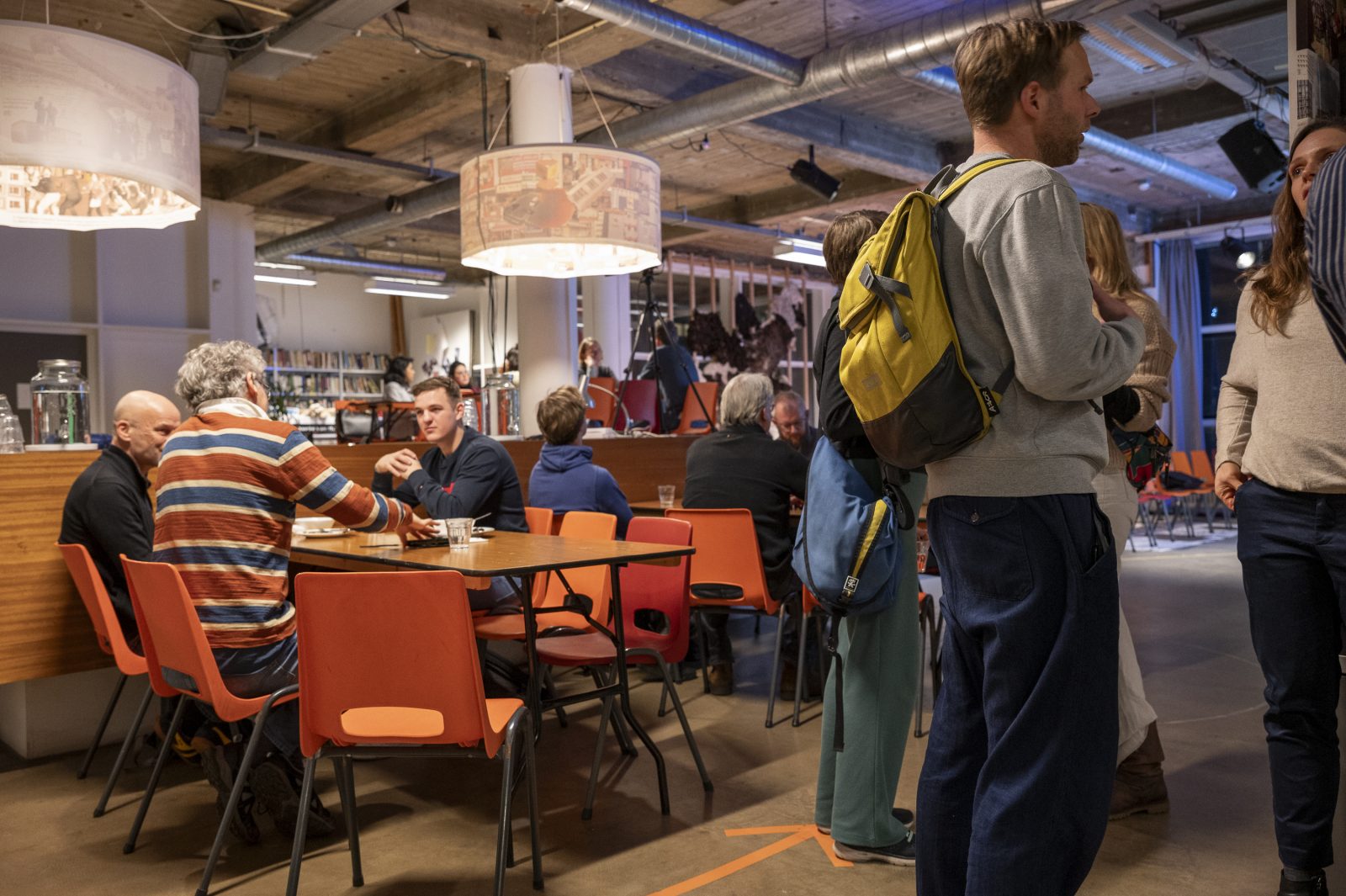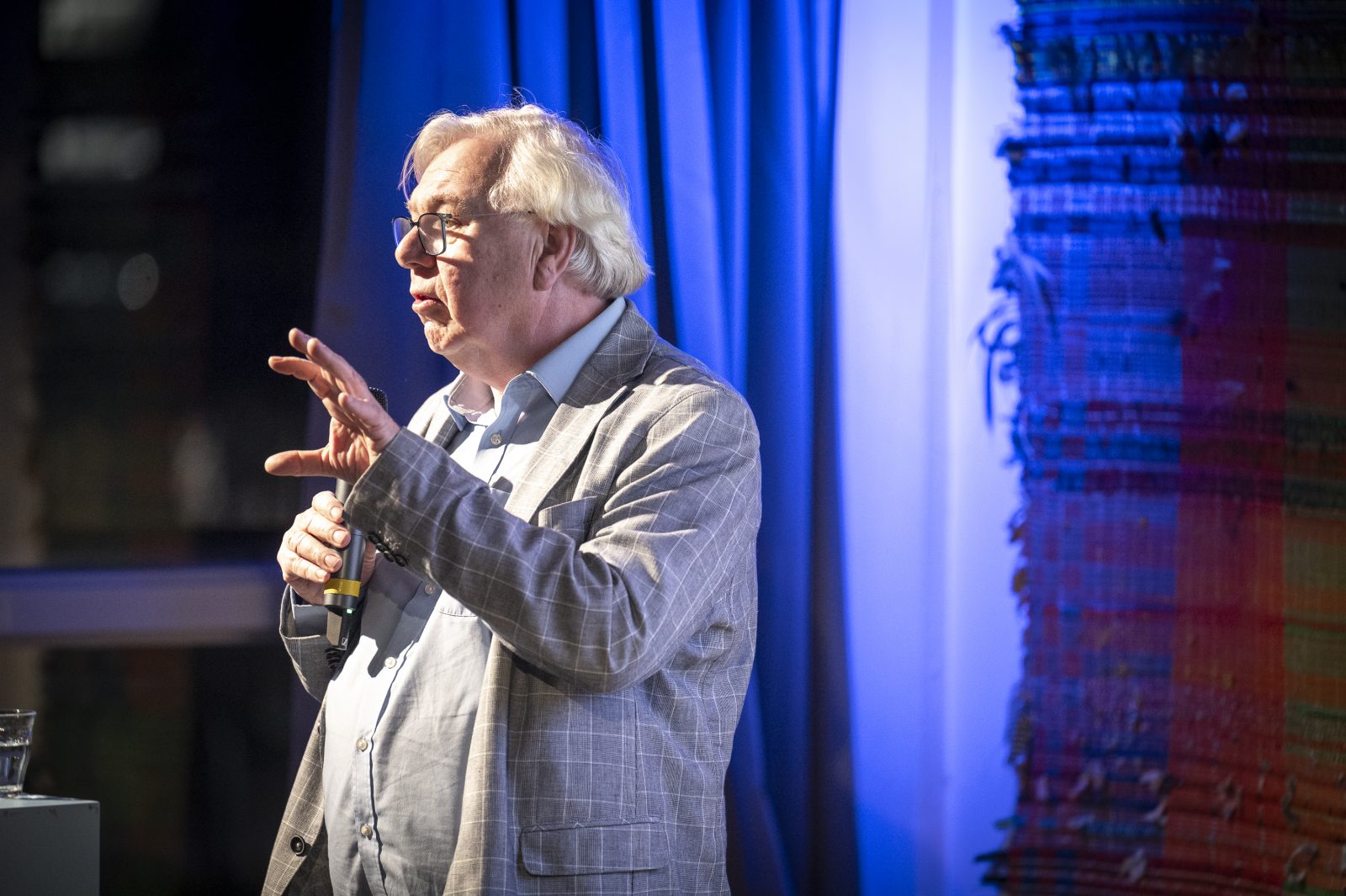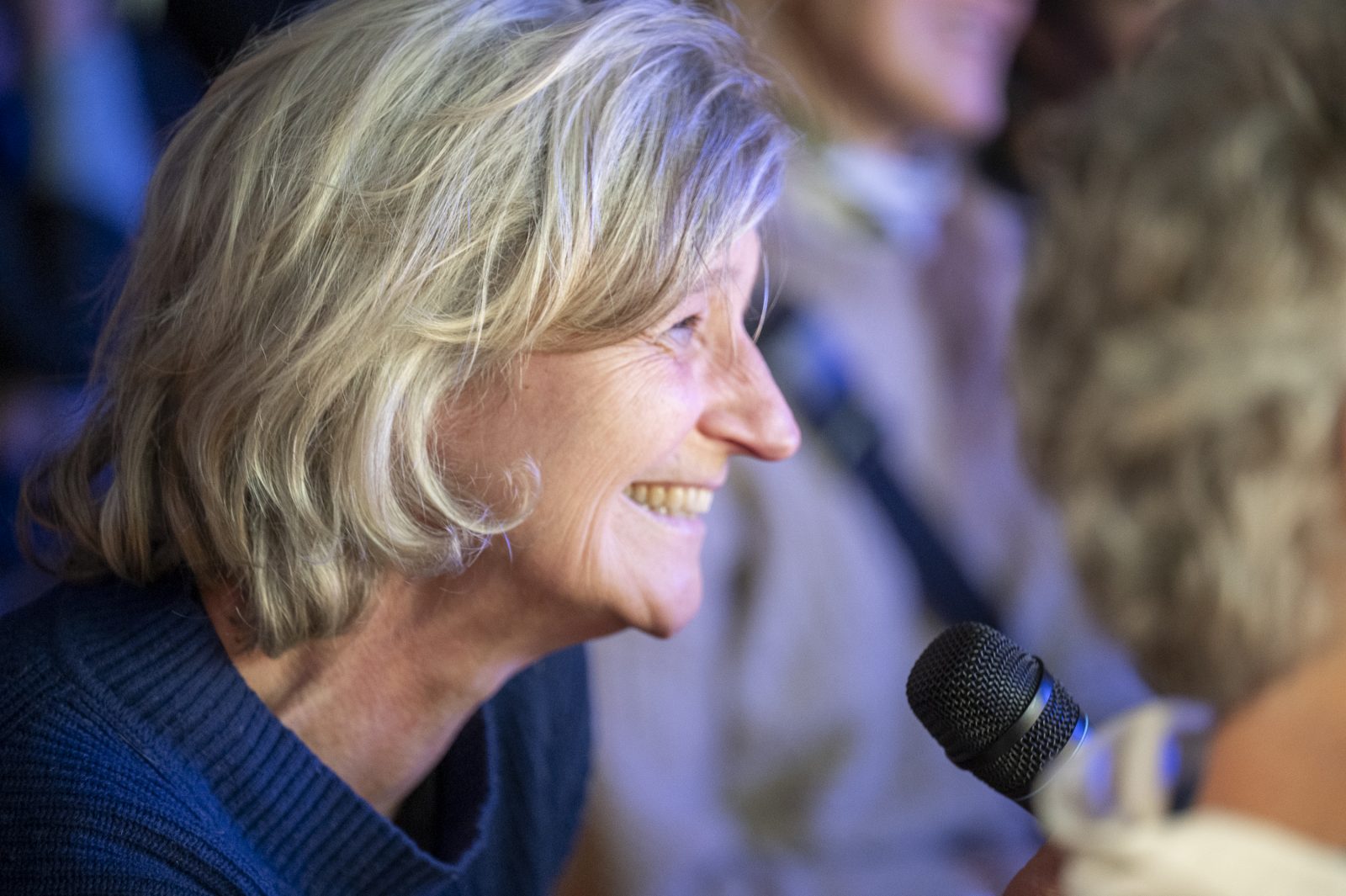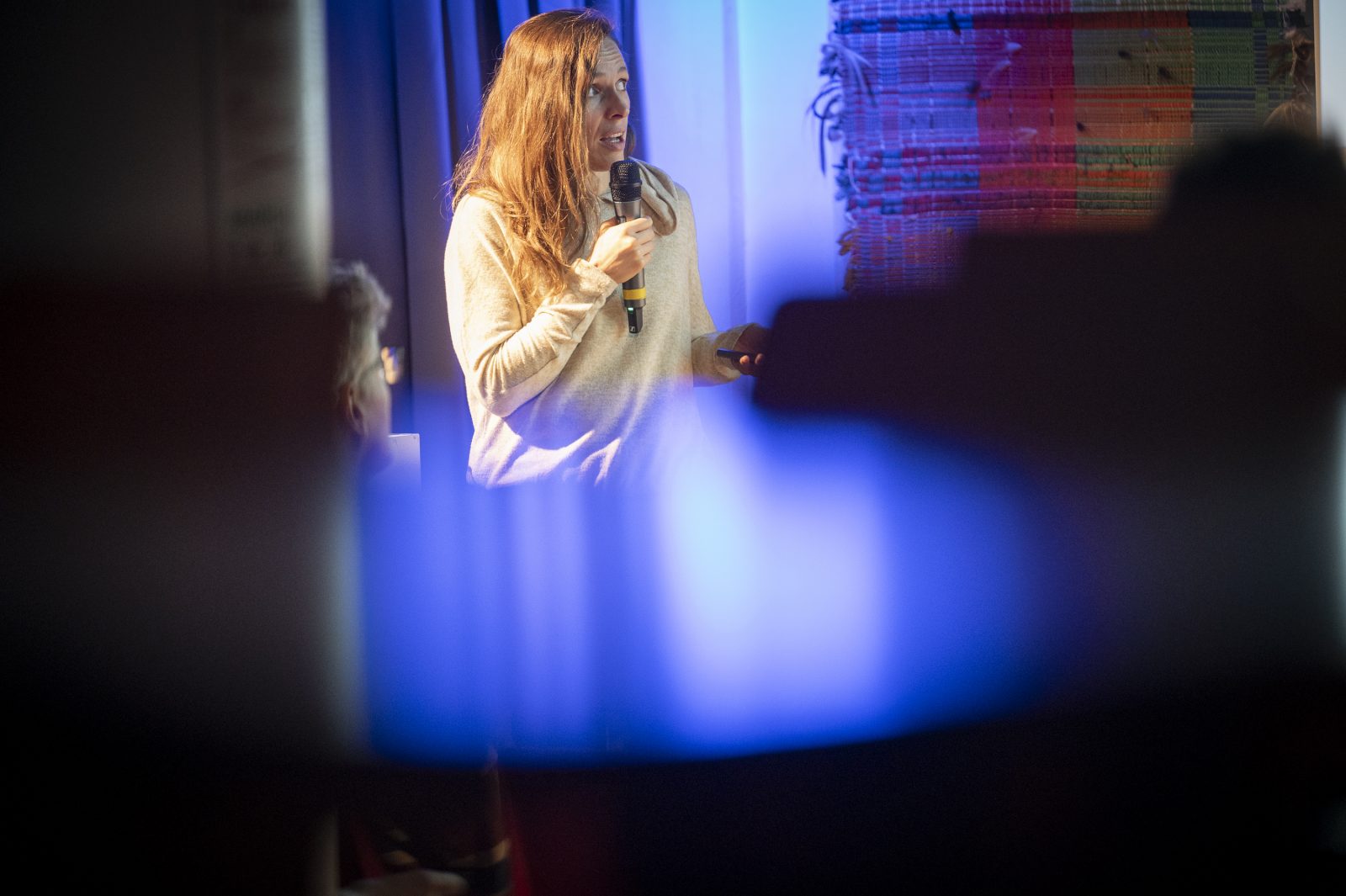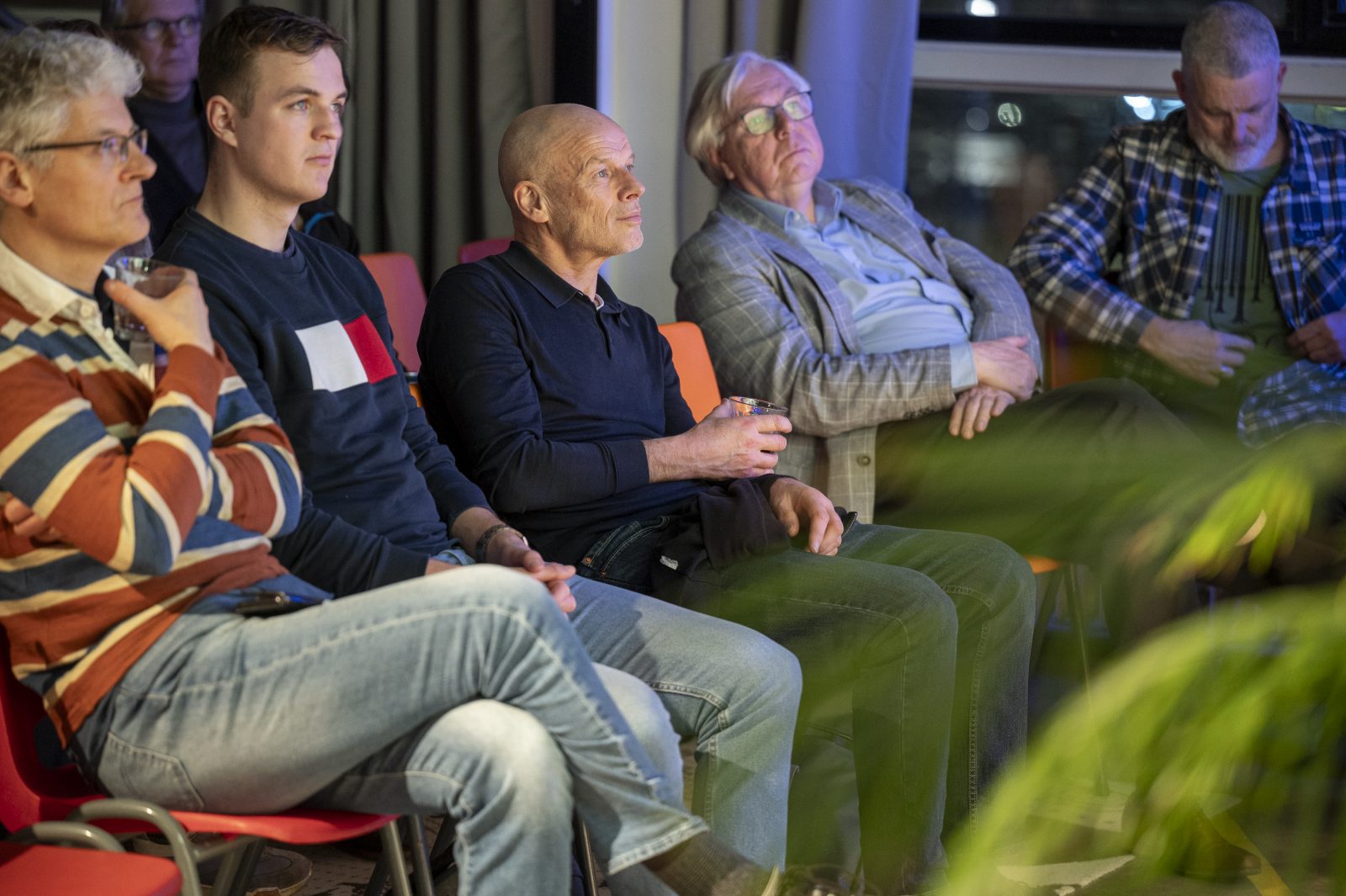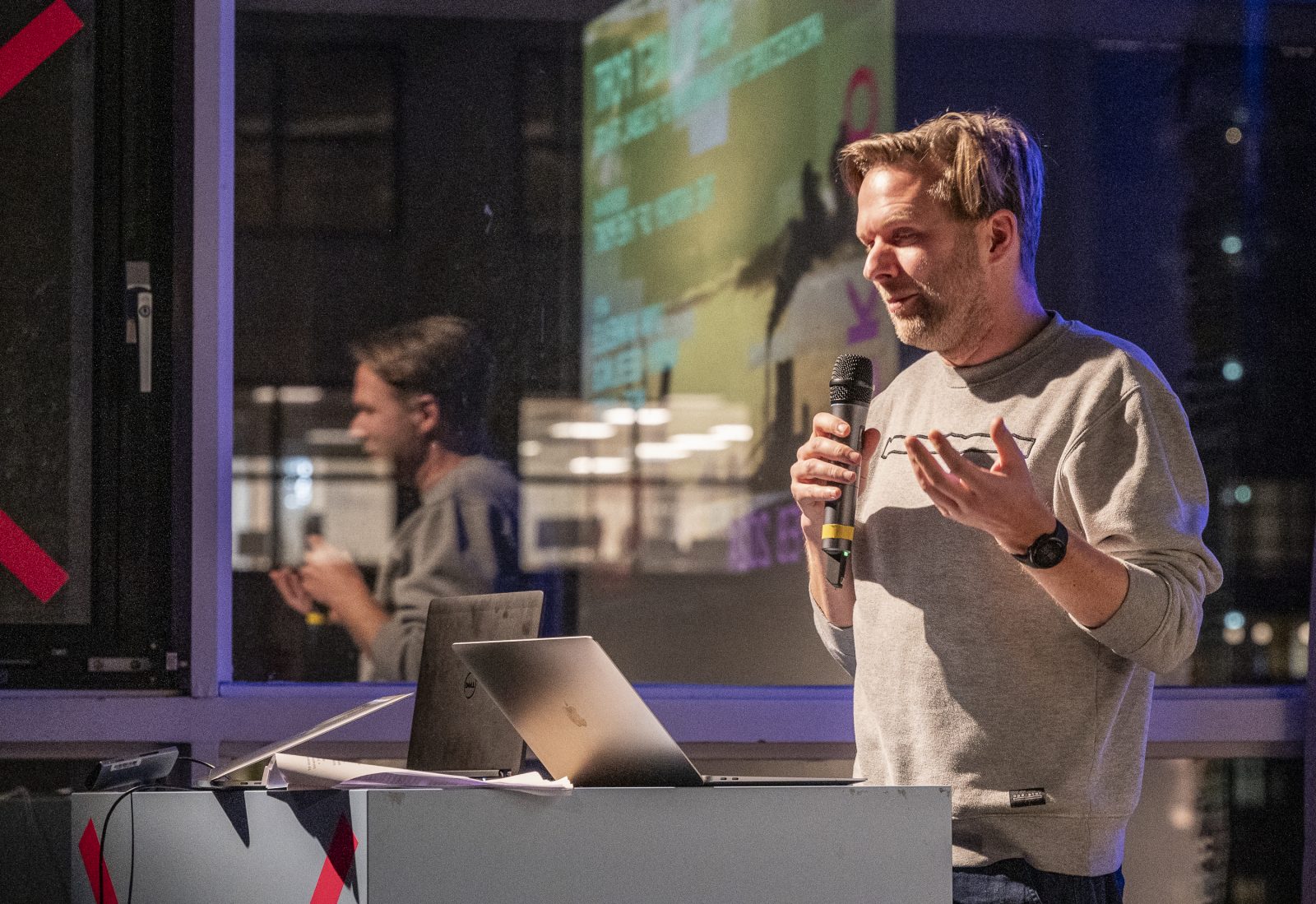Back to School with…One Planet Port - Session #1
architecture for transition of global trade
Session #1 of Archtiecture for Transition of Global Trade on the History of the Port, with Lynn Vanheule, Harry Geerlings & Inge Janse. Tuesday 13 February 19:00 – 21:00.

We started off the serie Archtiecture for Transition of Global Trade on 13 February with an evening that was focused on the historical evolution of the Port of Rotterdam, its current role and the challenges and urgency of a more-sustainable future.
As a kick-off, Lynn Vanheaule from One Planet Port gave an introduction about the initiative, and the measures OPP takes to monitor, inform and safeguard the sustainable transition of Rotterdam's Port. Lynn underlined the urgency of that matter not only on the local, but also global scale, pointing out that Port of Rotterdam takes a role-model reference.
This was followed by a lecture by Harry Geerlings - Emeritus Professor in the Governance of Sustainable Mobility, and a member of the SmartPort 2.0 research initiative. Geerlings not only explained the Port’s timeline of events from its very beginning until this day, but also stressed the factors that make an environmentally friendly future so unsure.
Journalist Inge Janse closed the evening by reading a speculative article that he wrote during the course of this evening.
Session #1 - The History of the Port
In this first session we delved into the historical evolution of our port, tracing its transformation into the biggest port of Europe and the largest petrochemical complex. We navigated the societal benefits it has delivered, but we also explored the consequential impacts on the climate and the environment. We examined the measures taken so far to mitigate these impacts and pondered the question: is it enough?
After an introduction by Lynn Vanheaule from One Planet Port, Harry Geerlings gave a lecture about the history of the city and the port. Finally, Inge Janse closed the first session.
Architecture for Transition of Global Trade
The port of Rotterdam holds a pivotal role in steering the momentum of change toward a sustainable global trade and transportation system. As crucial nodes in this transformation, ports serve as meeting points for global, regional, and local supply chains, facilitating the exchange of energy and materials. While these ports and their associated industries are deemed essential for the national and global economy, they are uniquely susceptible to the impacts of climate change. Despite the recognition of the imperative to align with climate targets and adhere to planetary boundaries, the pace of change has fallen short of what is dictated by these limits. This underscores the necessity for a cohesive and systemic approach to address ports, advocating for a just and equitable transition that confronts global inequities and builds local people power.
About One Planet Port
One Planet port is a new NGO in Rotterdam. We are on a quest to accelerate the ecological transition in the port of Rotterdam, underscoring its significance as a catalyst for change in global trade and transportation. What happens in Rotterdam is on the radar of all other significant ports. An apparent small change in Rotterdam can trigger widespread effects worldwide. We are rooted in the grassroots movement. We are targeting the Port of Rotterdam and the local and national government (owning and governing the Port of Rotterdam). Our mission is to transform the port of Rotterdam to operate within all planetary boundaries and to safeguard the well-being of current and future generations. We operate with our motto Making the unseen seen.
About Lynn Vanheule
Lynn Vanheule works with One Planet Port, an emerging NGO, envisions transforming the Rotterdam port to align with planetary boundaries through both movement building, research and visionary work. One Planet Port focuses specifically on the government’s role in steering the transition towards a fossil free port.
About Harry Geerlings
Harry Geerlings is professor in the Governance of Sustainable Mobility at the Department of Public Administration and Sociology of the Erasmus University Rotterdam. Furthermore he is member of SmartPort 2.0, a cooperation between the Rotterdam port community, Erasmus University Rotterdam and other key stakeholders in port related research.
For more than 25 years he is specialized in research in the domain of sustainable transport, the interaction with environment and spatial planning and the need for change (in modern vocabulary: transition management) . Valorization (getting the maximum value and usefulness out of projects), is one of his key priorities in the actions he undertakes.
About Inge Janse
Inge Janse is an investigative journalist, columnist and presenter. He works for the national news medium Algemeen Dagblad.
Programme
18:00 – 19:00 Doors open and dinner served
19:00 – 19:10 Welcome
19:10 – 19:40 Introduction by Lynn Vanheule - One Planet Port
19:40 – 20:10 Lecture by Harry Geerlings
20:10 - 20:15 Closing by Inge Janse
20:15 – 21:00 Conversation + Q&A
